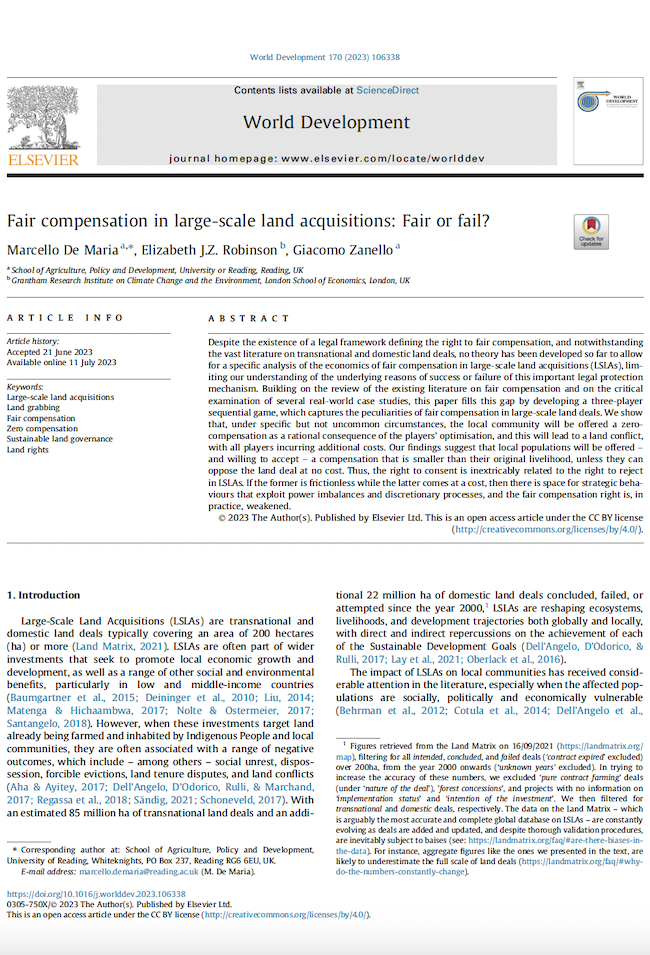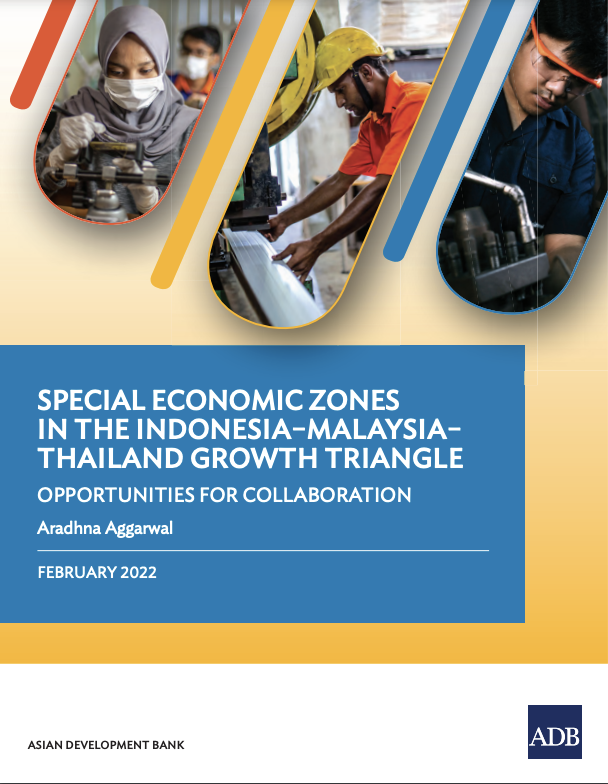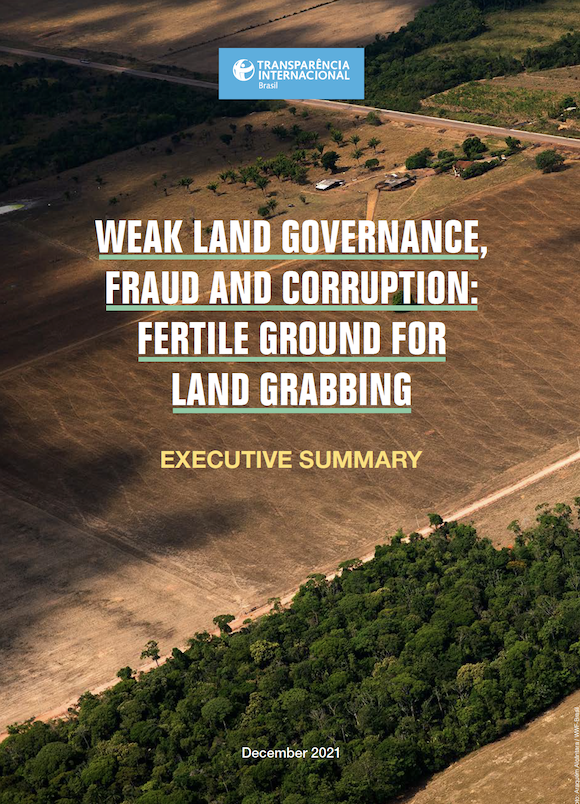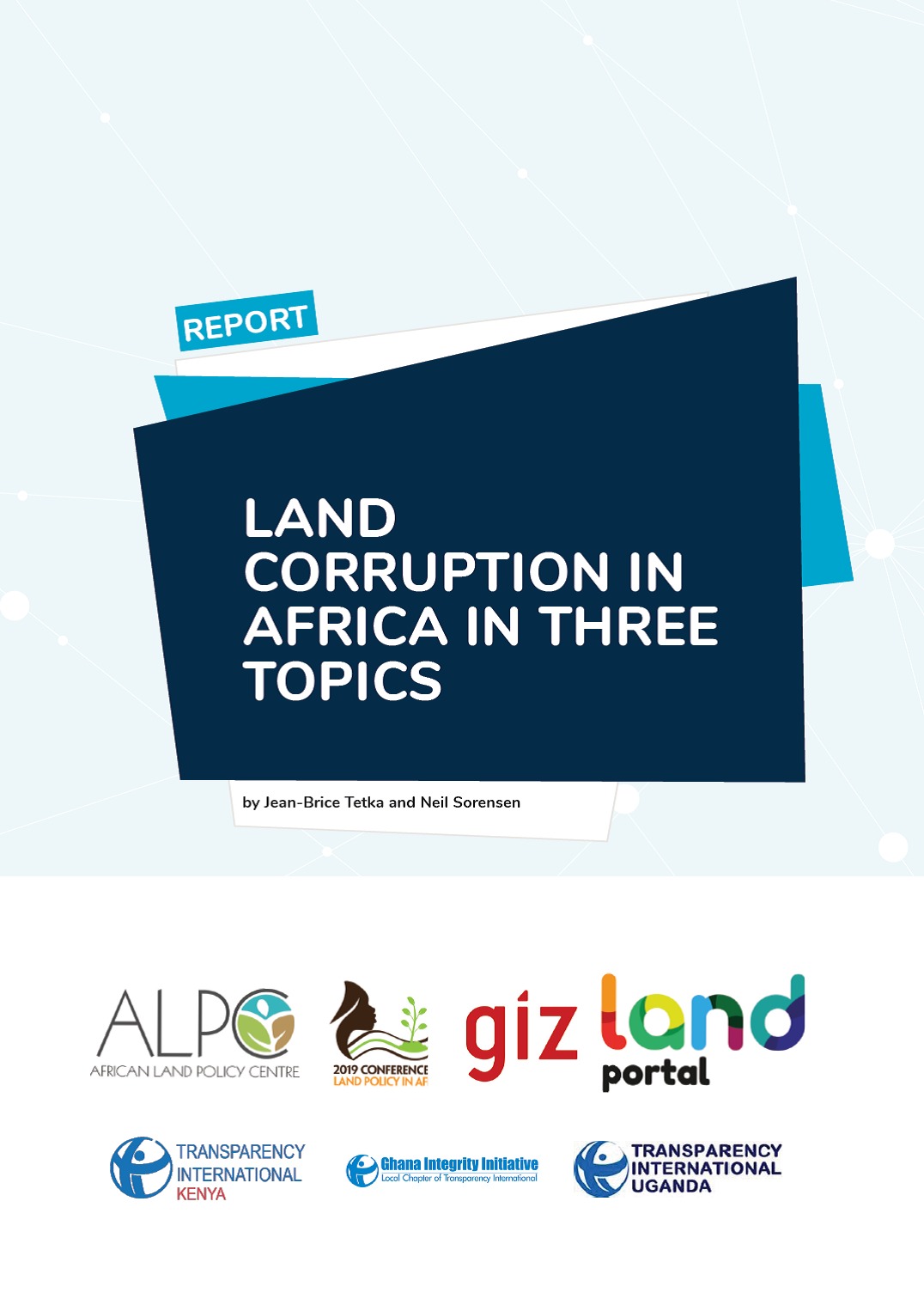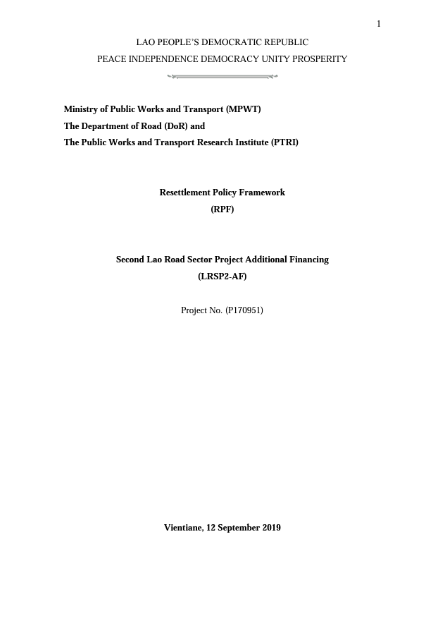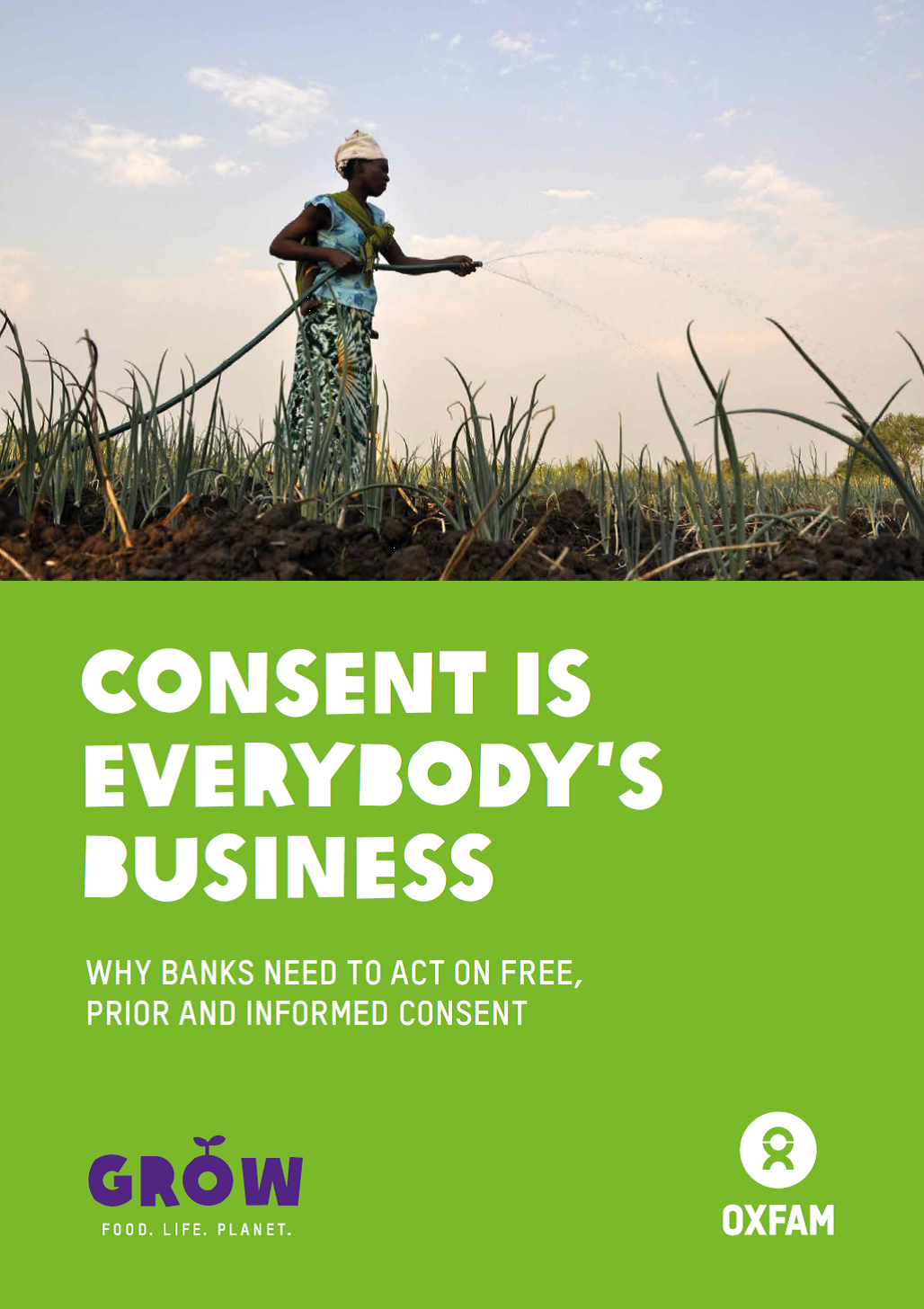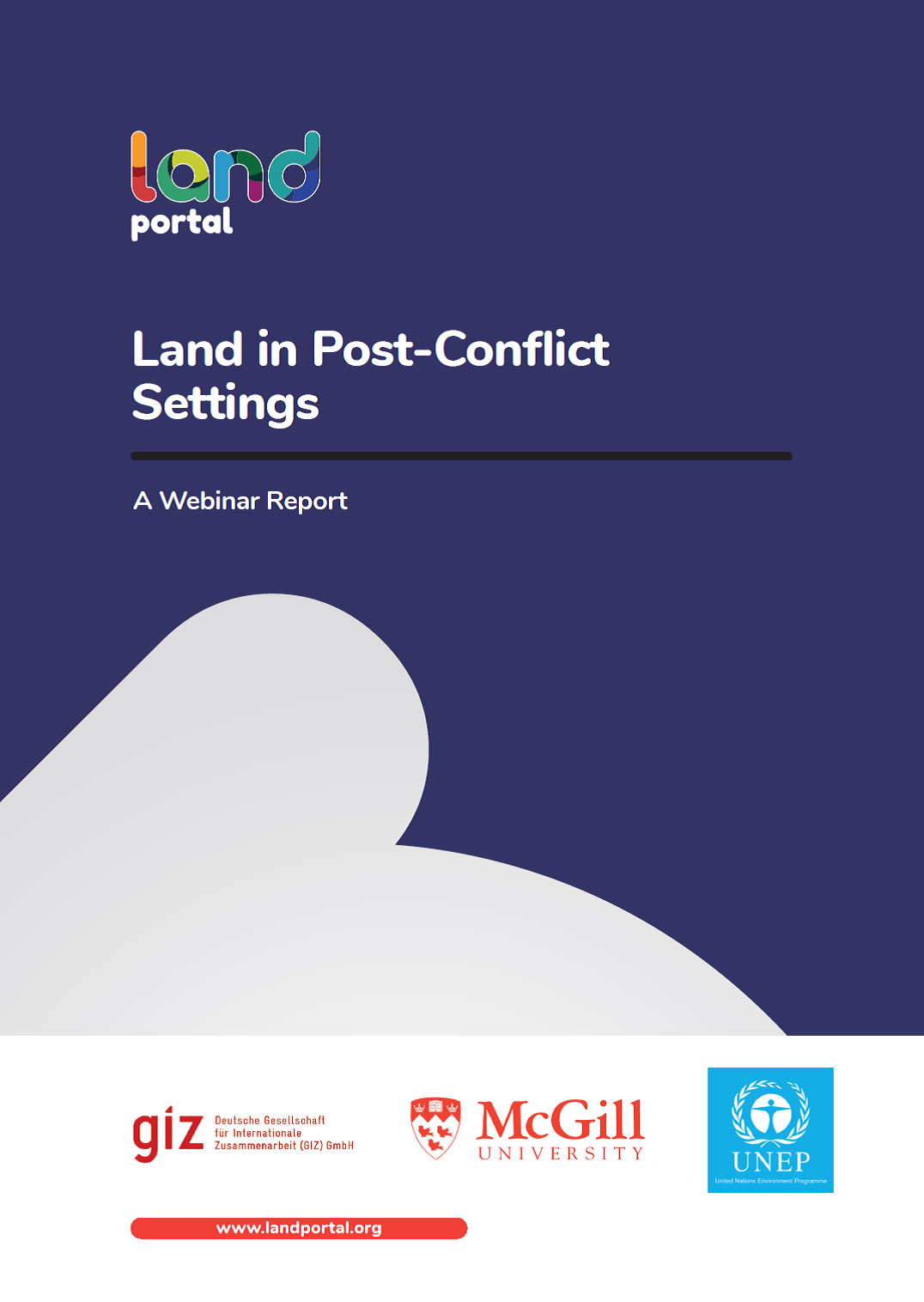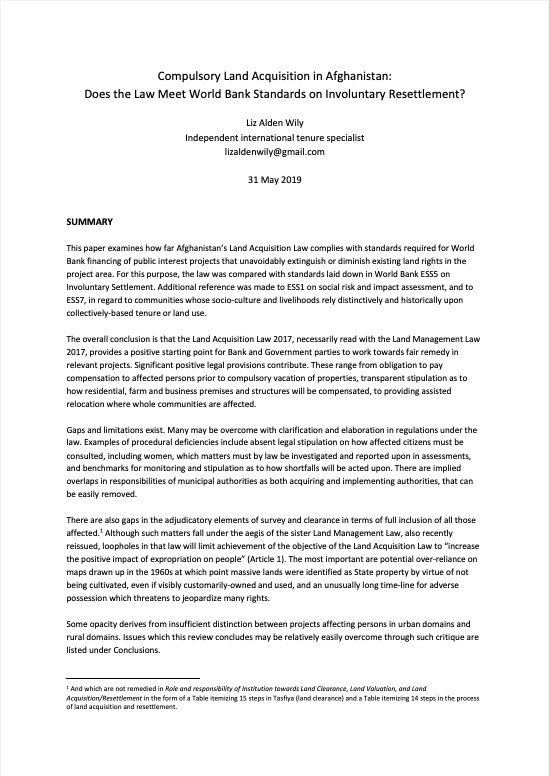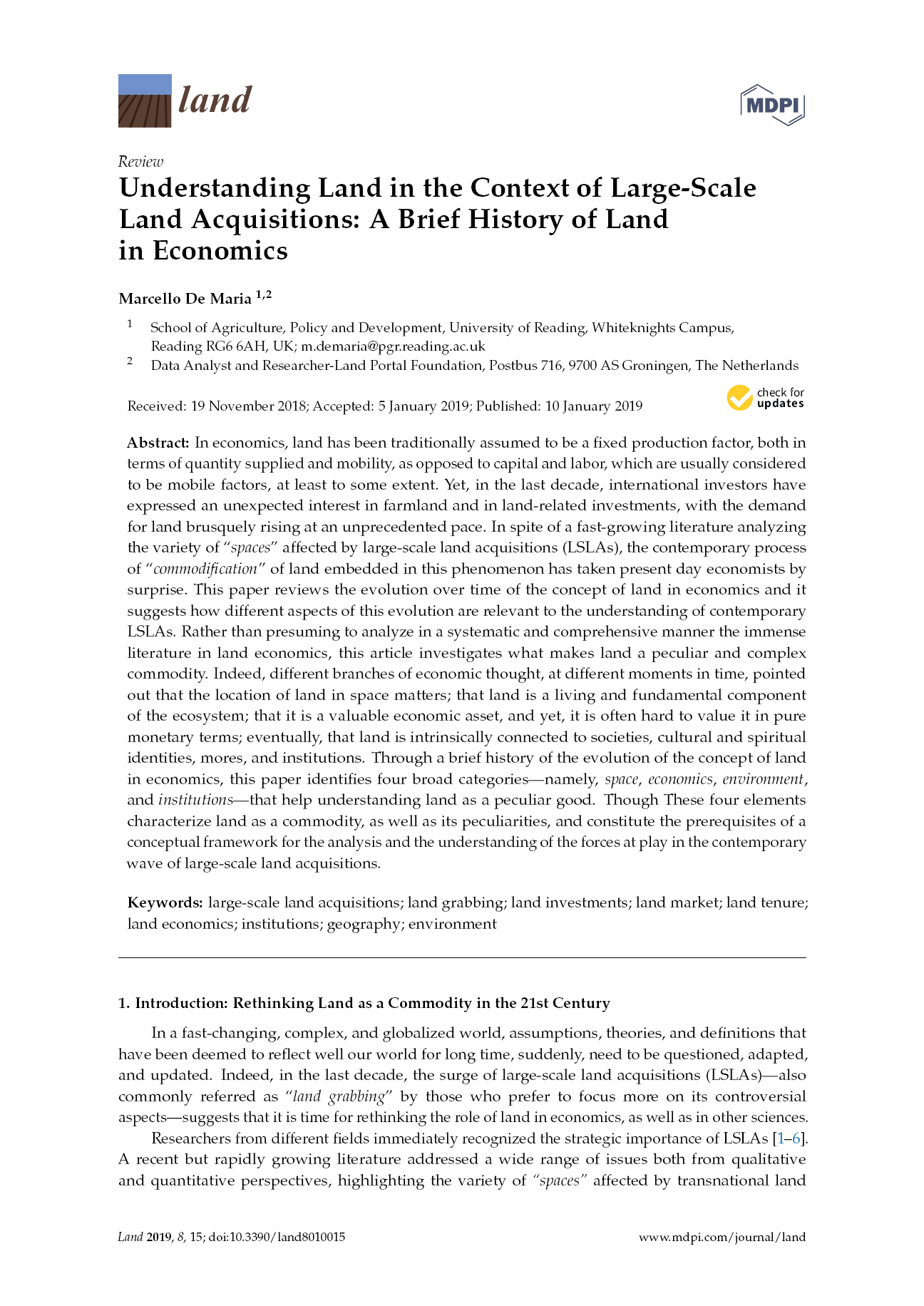Fair compensation in large-scale land acquisitions: Fair or fail?
Despite the existence of a legal framework defining the right to fair compensation, and notwithstanding the vast literature on transnational and domestic land deals, no theory has been developed so far to allow for a specific analysis of the economics of fair compensation in large-scale land acquisitions (LSLAs), limiting our understanding of the underlying reasons of success or failure of this important legal protection mechanism.

